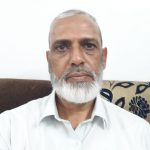
By Mohammed Atherulla Shariff
Radiance News Service
Nov. 5, 2023
Since Independence till the 1990s decade Madhya Pradesh has been the Congress bastion except during the wave of JP Movement (1977) and the rath yatra of L.K. Advani (1990).
After separation of Chhattisgarh in 2000, Madhya Pradesh became the cradle of BJP except in the last assembly, 2018, when it went to Congress. But then also the ‘Operation Lotus’ helped BJP to snatch the power from Congress.
Over 5.6 crore voters are eligible to exercise their franchise in the state this time. According to the poll body, out of the total 5,60,60,925 voters in the state, 2,88,25,607 are male; 2,72,33,945 female, and 1,373 others belong to the third gender.
According to the 2011 census, Muslims constitute approximately 6.57% of the total population in Madhya Pradesh. The state is home to about 5 million Muslims, with over a million residing in more than 19 districts.
The present delimitation of constituencies was done in 2002 on the basis of the 2001 census. Constituencies such as Bhopal, Satna, Rewa, Narela, and Jabalpur were divided into different constituencies in 2002 by the commission with the help of the erstwhile Congress government.
Despite Muslims play a significant role in nearly two dozen assembly constituencies, including key ones, like Indore-1, Indore-3, Indore 5, Bhopal Madhya, Bhopal Uttar, Ujjain, Jabalpur, Khandwa, Ratlam, Javara, Gwalior, Shajapur, Mandla, Neemuch, Mahidpur, Mandsaur, Nasrullaganj, Ichhawar, Ashta, and Ujjain South, politically they are confined to only two constituencies of the capital city Bhopal.
Muslim political representation in the state has experienced a substantial decline over the years. At its peak, Muslim representation was at 7% in 1962 when leaders like Shakir Ali Khan from the Communist Party of India (CPI) were also elected. Currently, there are only two Muslim MLAs in the Madhya Pradesh Assembly: Arif Aqueel from Bhopal North and his son Arif Masood from Bhopal Central. Arif Aqueel became MLA in 1990 from Bhopal North constituency and has since been representing it.
This time also the duo, father and son are only Muslims who got ticket from INC to contest from their respective constituencies.
For almost three decades, politics in Old Bhopal has centred around one man – Arif Aqueel. It has happened several times that BJP won all the seats in Bhopal, except Arif Aqueel’s constituency – Bhopal North and saved Congress’ prestige in the State capital.
In 1993 Arif Iqbal switched over to Janta Dal Party and contested the elections but lost. He rejoined Congress Party in 1996 and in 1998 he contested MLA election and won the 11th assembly election.
There are no serious and significant contenders in Muslims from other constituencies also where their number is considered decisive. Except in 2003, Sayeed Ahmed Khan, who contested from INC from Rampur Baghelan, was runner up, securing 31690 votes, i.e. 22.7%. No other candidate from other secular parties too could touch this bar.
Even though persons like Akhtar Bhai from SP, Abdul Zarif, Shafiq Ahmed and Asif Ali Khan from Rashtriya Samanta Dal, Rashid Khan from CPI, Ali Inayat Mustafi from NCP and Naseem Akhtar Khan from BSP appeared on the political stage during different times, but could not make any inroad.
None of the other secular parties have a significant place to be counted as the third force in Madhya Pradesh. The choice for Muslims is confined to INC. This is considered a weakness too and the party takes them from granted obviously.




